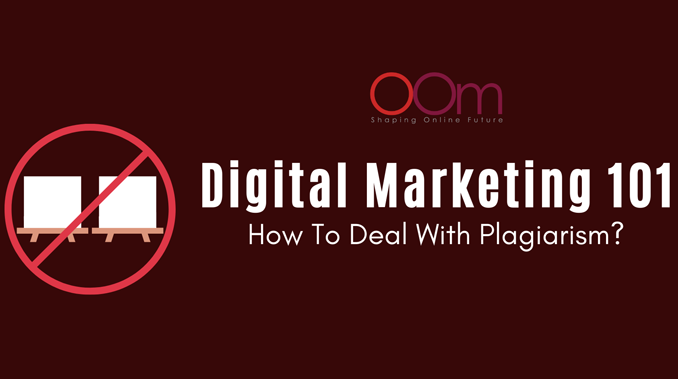
Plagiarism, it’s the number one pet peeve for marketers, writers, and pretty much anyone who creates content for a living. Seeing someone else copy your work is frustrating. To make matters worse, that person might be getting a higher SEO ranking for something you created!
No one likes a thief, even thieves themselves! Unfortunately, in the industry—there are a lot of them. Prevent these thieves from stealing your content by taking matters into your own hands.
What should you do if you stumble across a website that has stolen your work? You might think of taking legal action against the writer or owner of the website. While doing so is usually the right thing to do, it may take a while before the plagiarised content gets taken down.
Sometimes you have to take steps further to ensure your hard work is free from plagiarism and hope someone else will never steal from your website ever again.
Here’s how you should deal with plagiarism.
How To Deal With Plagiarism?
1. Find Duplicate Content
Prevention is better than cure, and this applies to content marketing and . Make it a habit to check for signs of duplicate content on the Internet. Doing so will allow you to discover whether or not someone has copied from your website.
One easy way to check for plagiarism in your content is to use a plagiarism checker or detector. Usually, the purpose of using a plagiarism checker is to make sure your content is 100% original before you post it on your website. However, you can also take advantage of plagiarism checkers to detect signs of duplicate content.
For example, before you publish your blog post, you can use a plagiarism checker to see if your work is original and unique. If your content is ready for posting, go ahead and proceed. After a few weeks or months later, you can check the very same content for plagiarism and see if someone else has copied your work.
2. Prepare And Provide Proof
Hiring a lawyer and filing a case will be a lengthy process that is not worth your time and money. Also, getting a lawyer is expensive. In the end, the choice is yours, but perhaps the best way to solve the problem is by approaching it head-on.
However, before you contact the owner of the website, you should have a plan first. Prepare and provide proof that the website has stolen a piece of your content, word by word. You can use a website like to prove that your work is entirely yours.
You can send a message to the owner of the website as a warning. If they reply with an excuse and denial of your accusations, then maybe the best response is to file a legal case. But before you do so, make sure you have proof that the other person has copied from your website.
3. Take It Seriously (But Lightly)
No one can deny that discovering someone plagiarized your work is frustrating. To think that a person is trying to leech off your hard work can be the most annoying thing in the world.
However, believe it or not, not every plagiariser is aware of what they are doing. Some of them think copying other content is okay as long as they are referencing the source. In reality, paraphrasing is different compared to plagiarism.
With paraphrasing, your goal is to rewrite the original text in your own words. As for plagiarism, you are copying the content entirely and grabbing all the credit. The problem is that some content creators and writers mistake plagiarism for paraphrasing. If such is the case for the person stealing from your content, contact them and discuss the problem professionally.
Nonetheless, the most frustrating part about the whole ordeal is that there is no official penalty for duplicate content. Not to mention, the person copying your work and incorporating it into their website might get a higher SEO ranking than you.
That doesn’t mean having duplicate content on your website has no penalties or risks. Google filters similar or identical content, which is almost the same as giving a penalty. For that reason, you must report to Google if a website has the same input as yours.
What Else Should You Consider?
In terms of SEO, plagiarism seems like a minor problem. However, in the long run, it can harm your SEO if you are the victim of plagiarism! When conducting efficient SEO services for your website, make sure no one is leeching off your hard work.
Make sure your SEO and content marketing campaigns are safe and secure from plagiarism. Get in touch with an SEO agency in Singapore to learn how you can achieve higher SEO rankings without getting plagiarised.
Contact our SEO company in Singapore at 6391-0930 for more of the latest trends in the digital marketing industry.

Leave a Reply